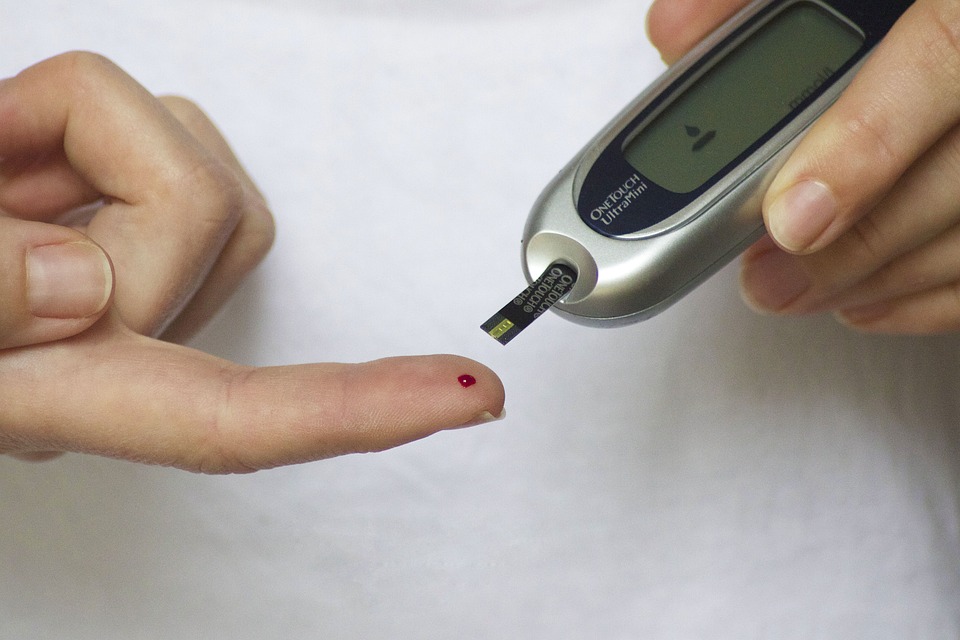
A diet plan known as the ketogenic diet, more commonly referred to as the keto diet, consists of a drastically reduced intake of carbohydrates meant to force your body to utilize fat instead of glucose for energy. Supporters of the eating plan assert that it is the most proficient technique to shed fat and hold a slim physique. The diet is also used in medical settings.
Nutritionists have concerns that this meal plan could be too difficult to maintain for a large number of individuals. Gain knowledge about the pros and cons of a keto diet prior to choosing if it is suitable for your needs. It is advised to consult with your medical professionals before beginning this sort of dieting plan, especially if you have a preexisting health issue.
What Experts Say
“The ketogenic diet severely limits carbohydrate to force the body to burn fat. However, carbohydrates are limited so much on this diet that veggies and fruit are restricted, which experts agree limits fiber and nutrients. Plus, restriction often promotes long-term weight gain.” —Willow Jarosh, MS, RD
Background
For over a century, a ketogenic diet has been employed clinically. Medical professionals believe that the diet originated in the 1920s, similar to fasting regimens employed as far back as 500 B.C. to cure epilepsy and other types of seizures. For a long period of time, the diet was applied successfully to cure the illness, but people began to lose enthusiasm for it with the invention of anti-seizure medications (AEDs) in the 1990s.
Recently, the ketogenic diet has become increasingly employed in healthcare to help manage numerous afflictions such as headaches, neurotrauma, Alzheimer’s, Parkinson’s, ALS, cancer, stroke, mitochondrial disorders, brain injury, psychiatric issues, autism, and migraine.
Researchers are looking into why diet has a beneficial influence on some medical issues. Various published articles suggest that the ketogenic diet helps stabilize abnormal metabolisms, which can create these medical problems.
This diet has also gained traction in certain athletic and weight-loss circles. It came to light that individuals receiving medical treatment who were put on the diet routinely shed pounds, which caused the diet to become popular as a quick means of shedding pounds.
Celebrities and professional athletes have touted this diet as their ideal food regimen for slimming down, maintaining their weight, and boosting their athletic prowess. The resulting news stories have caused the keto diet to become even more popular.
How It Works
A diet that strictly limits the consumption of carbohydrates is referred to as a ketogenic diet. However, not all low-carbohydrate diets are ketogenic. There are three different dietary plans which focus on reducing the number of carbohydrates consumed, with only one of them being widely regarded as the true ketogenic diet.
When you follow a ketogenic regimen, your body switches to a state of ketosis, where it uses fat as its energy source. The generation of ketones is the reason why these diets are known as the “keto” diet.
The majority of your calories on a ketogenic diet are derived from fat, typically 70 to 75 percent. You should eat approximately 5-10% of your daily calories in carbohydrates, with the remaining amount coming from protein.
The diet has some differences in its composition. It has been suggested that daily carbohydrate intake should not surpass 20 grams, while other accounts have advised up to 50 grams, with a majority suggesting that carb intake should consist of no more than 5% of overall calories.
The majority of meals incorporate fatty substances, such as fatty fish, meat, nuts, cheese, and oils. It is suggested in certain variations of the keto diet that you should consume select varieties of fat. Authors often advocate not including oils that are full of polyunsaturated omega-6 fats (like soy, corn, cottonseed, and safflower) in the diet, as they are not considered very good for one’s health.
Different types of diets suggest eating fats high in medium-chain triglycerides (MCT), similar to coconut oil and MCT oil since these fats can be quickly transformed into ketones by the body.
Generally, those on ketogenic eating plans usually have a lot of components in their diet that is high in saturated and monounsaturated fats, such as olive oil, butter (from grass-fed cows is best), avocado, and cheese. It is suggested to use high oleic forms of safflower and sunflower oils rather than the regular versions since these contain more monounsaturated fats and less polyunsaturated fats.
It is not necessary to plan meals around a timeline nor buy certain items, however, the diet plan has very little leeway when it comes to food options as the intake of carbs is limited dramatically.
What Do the Studies Show?
The brain and central nervous system still require energy even when the body is running out of glucose, which it obtains from the carbohydrates in the diet. The body produces three different substances known as ketone bodies: acetoacetate, acetone, and beta-hydroxybutyric acid. The tissues can break down these substances in a gradual process until they are ultimately changed into acetyl-CoA, which can then be used to create energy.
Ketogenic diets are likely to demonstrate a noticeable reduction in weight early on. Short-term interventions or regimens often lead to desirable results, nevertheless, beyond the one-year mark, mice, and humans seem to find the ketogenic diet less advantageous or difficult to keep up with. It appears that the success rate for weight loss when it comes to a very-low-calorie ketogenic diet (VLCKD) is greater than that of an unrestricted energy ketogenic diet, however, a similar response has been noted in biological markers like cholesterol, glucose, and insulin levels in both of these diets. This implies the enhancements in glucose metabolism are not strictly due to weight loss that has been caused by a calorific deficit. In his review of ketogenic diets in 2003, Eric Westman commented that while results align with an initial amount of weight loss, there was not enough evidence to reject or promote the very-low-calorie ketogenic diet specifically for weight loss purposes.
For those who are athletes or hoping to use exercise to help them slim down, the ketogenic diet is unlikely to have any significant advantages, if any. Patients on a ketogenic diet noted more exhaustion and effort during exercise even if the exercise was not particularly intensive, which may contrast with other short-term weight-loss strategies. It is logical to deduce that a genuine ketogenic diet that only has a fair to low amount of protein may not be able to supply the muscles with the elements they need to reconstruct themselves after doing resistance workouts. Research has revealed that people who are on a ketogenic diet commonly experience fatigue, likely linked in a number of different ways. Some experts believe it is related to an involved procedure that is related to serotonin transmission, as well as processes that may result in a greater accumulation of ammonia. The same researchers who gained these findings put together their own examination of the effect of the ketogenic diet on the physical makeup of grown-up athletes. Participants following either a ketogenic or regular diet and doing exercise both reduced their overall and abdominal body fat. However, just the individuals on a regular diet and engaging in exercise saw a rise in lean muscle mass.
A different trial involving women who weren’t acclimatized to vigorous activity demonstrated that the ketogenic diet combined with exercising significantly decreased body fat but lean body mass remained the same. The alternative group, who were on a standard diet, were able to enhance their lean body mass with little to no influence on their body fat. The evidence implies that those who are focused on improving their athletic performance or seeing a toned physique as they shed pounds may not find the ketogenic diet particularly effective.
Results from studies on the effects of a ketogenic diet are conflicting, however, typically HDL and LDL levels increase and total TAGs in the bloodstream usually slightly lessen. Some studies also present an overall positive response to a ketogenic diet. A short-term investigation of overweight grown-ups uncovered that following a cautiously determined program of ketogenic dietary refreshments improved their blood lipid profile, while an all-encompassing (24-week) research of obese grown-ups on a ketogenic diet indicated a decrease in LDL toward the finish of the treatment. Despite this, most studies show that the ketogenic diet leads to a rise in Low-Density Lipoprotein (LDL) because of the high-fat content of the diet. Results like the one mentioned in this passage are an outlier, and not common. For people who are worried about their cholesterol, studying results such as these may not be enticing when you consider that several typical and low-fat or plant-based diets have been definitively demonstrated to substantially cut back LDL and be generally positive for heart health.
Patients who are suffering from diabetes, pre-diabetes, or metabolic syndrome may want to look into the ketogenic diet since it will require them to limit their carbohydrate intake. The unwillingness of their body to respond to insulin means that their musculature is not able to easily absorb glucose, so a significant amount of it will be held in fat tissue. The effects of a ketogenic diet are usually quite positive – when glucose levels are considerably reduced, many of the signs of insulin resistance will disappear. The examination of several research studies on the ketogenic diet showed that it typically results in weight loss, better insulin sensitivity, fewer alterations in blood sugar, and lower fasting blood sugar levels for individuals with diabetes. Still, the author points out that there is debate about this diet, and hypothesizes that its effects may be part of the short-term weight loss that it usually causes. He states that yet another comprehensive analysis of ketogenic diets that was published near the same time also exhibited beneficial outcomes for indicators of diabetes and resistance to insulin, however, interpreted the evidence as inferring that the weight loss resulting in these positive results was triggered by an increased intake of proteins and fats that brought about a diminished appetite. Given that numerous studies referred to in this blog post showed a more prominent divergence between calorie-restricted and unrestricted categories than with high-carb and low-carb groups, it is fair for numerous researchers to keep inquiring about it.
The ketogenic diet can be helpful to diabetics experiencing discomfort and reduced ability to use their nerves because of neuropathy due to diabetes. A study using mice who had been given diabetes revealed that being on a keto diet was able to stop the mice from becoming overly sensitive to physical pain, and in the mice who had already developed it, the keto diet was able to make the allodynia subside.
Much like the ketogenic diet has been widely recognized for its impact on glucose for diabetic and pre-diabetic patients since it mimics fasting, there has been scrutiny surrounding its potential effects on cancer. Cancer cells typically experience a heightened rate of glucose metabolism, therefore it makes sense to opt for a diet that cuts down on glucose intake. It is theorized that the effect of doing this may be produced in ways other than simply depriving a tumor of glucose. The end result of the glycolysis process, Pyruvate, acts directly on poisonous superoxides and peroxides, lessening their capacity. This could cause oxidative stress on tumor cells. The ketogenic diet results in fewer substrates entering the pentose phosphate pathway, which is needed to form NADPH to reduce hydroperoxides and thus, lessen oxidative stress. As an option, the keto diet encourages cancer cells to convert to using energy obtained from mitochondria, which is thought to be destabilized in cancer cells, making them more strained than the normal cells nearby. The insulin/IGF-1 factor is also linked to tumor growth and is altered by the intake of glucose in the diet.
Conclusion
The ketogenic diet can be utilized as an effective tool to deal with some neurological conditions.15 It has also been utilized in the short run to address diabetes and obesity. Many people have achieved their desired weight objectives with this dietary approach. It is a commonly accepted fact that the standard American diet, which is filled with high-carbohydrate foods, makes it hard to maintain a healthy lifestyle.
Be aware that if you’re deciding to attempt a ketogenic diet, you’ll need to adapt it to your own metabolic processes and you may need to experiment with the correct combination of carbs and calories. It would be a good idea to talk to a nutritionist who is certified to help you create meal plans that fit into the ketogenic diet and meet your health requirements. Make sure to alert your doctor if you make changes to your diet, especially if you have long-term health concerns.














